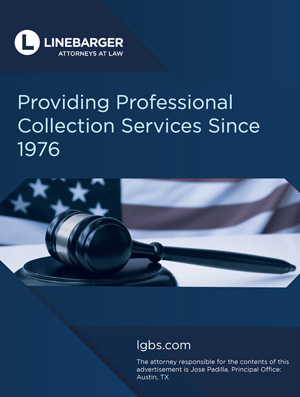Amanda Marshall

- Title, Court: Public Outreach/Law Library Director, Superior Court of Cobb County
- Number of judges at court: 10 superior court judges
- NACM member since 2006
You served as the Chair of the NACM Media Guide Committee. What did that entail and what did you learn as a result of it?
Acting as chair of the media guide committee entailed planning, planning, and more planning! Early in the planning stages, I reached out to CCPIO (Conference of Court Public Information Officers) to see if they would be willing to partner with NACM in this endeavor.
From there, my first step was to develop a framework for the project by creating an outline of topics. Then I divided the committee into chapter groups containing representatives from both organizations. This ensured the guide would be easy to follow and understand, especially to a reader with no prior knowledge of dealing with the media.
One thing I learned during this project is there is no one-size-fits-all solution for every situation. Each court is different and presents its own unique set of challenges. Having multiple authors with different experiences allowed us to provide the best advice for courts to analyze their goals and select the best solution for their media needs.
What are some of the key points of the Media Guide? Why would a practitioner need it?
Some key points of the Media Guide are the discussion of Effective Communication Practices, Social Media Use, Press Releases (Drafting and Distribution), Emergency Situations, and High-Profile Cases.
In addition to this information, the guide contains real-life examples of media policies/plans, media advisories/press releases, media packets, checklists, and also a glossary of media terms. Particularly in situations where there is no PIO to assist, this guide serves as a one-stop shop for court administrators to turn for their media needs.
You serve as a public information officer (PIO). Can you describe your job duties?
Cobb Superior Court does not have a PIO. Our court works alongside the Cobb Communications Department, which serves the entire county. As you can imagine, serving a large county such as Cobb does not leave a lot of time to focus solely on our court. In my current role, I serve as the liaison between our court and the communications department. I manage all of our court’s public outreach initiatives, including internal/external communications. For example, drafting press releases, coordinating with the media, and planning for court events and ceremonies. I am responsible for developing marketing materials including videos/brochures, and also managing our internal/external websites.
How did you get started in court service and ultimately PIO?
I began my career at the courts in the mediation department in 2003, and moved to my current position in 2006. I obtained my bachelor’s degree in communications, with a focus on public relations and a minor in marketing. It is my passion and something I have always enjoyed doing. One of my first accomplishments in my current position was developing a public outreach program titled From the Court to the Classroom, in 2009. At that time, schools in our county were facing major budget cuts, and forced to eliminate field trips. Our response was to design a program that enabled us to take the learning to them.
During the development of the program, I created a video to explain the judicial process in a way which was easy for elementary-age school children to understand. Years later, the program evolved into a mock trial program hosted at our courthouse. Students would act out a trial in our courtroom with one of our judges. The program has become so popular within our school district, we unfortunately have a waiting list every year.
Not all courts have a PIO. What pointers do you have for court administrators who do not have a PIO?
Read the guide. Being prepared can make all the difference in effective communication with the media and the public. This guide covers a plethora of essential content that will absolutely benefit those courts who do not have the luxury of a PIO.
What are the most important points to remember when working with the press?
It is important to understand their job. The media’s job is to share a story that gains public interest. Always give the media as much information as possible so they don’t speculate and report inaccurate information. It’s also important to understand what kind of deadlines they are working with and be timely with your responses. Social media deadlines pressure reporters to post stories quicker. It’s important to always be proactive when dealing with the media. Don’t wait for the media to come knocking at your door before you are putting a game plan together.
Developing relationships with the media is essential. Reporters don’t often understand the judicial processes, so it becomes important to be as transparent as possible and avoid giving no information at all. Saying “no comment” often creates mistrust. Take the time to explain why you cannot comment.
Describe the service on a Guide Committee and the amount of work required. What would you say to someone intimidated by the thought of writing a guide?
I definitely couldn’t have taken on a task this time-consuming without an amazing support system. My husband jokingly asked why he wasn’t included in the acknowledgments section of the guide. My family definitely had to sacrifice some time with me working nights and weekends, but knew it was temporary, and something that was important to me. That made all the difference.
A significant amount of time was spent working with my amazing co-captain and editor, Kenneth Pankey, who spent countless hours going over submissions and editing the content. So I would say an amazing editor such as him is a MUST when working on a project of this capacity.
Finally, finding the right people to work on the committee was key. Fortunately, I worked with the most amazing professionals from CCPIO and NACM, who served as authors of the guide and contributed content. This guide would never have been the wonderful product it is today without the contributions of the authors from both these organizations.
Was your service on the Media Guide Committee fulfilling? Would you recommend a similar service to others?
Absolutely, 100 percent! There is nothing more rewarding than seeing something you have worked so hard on come to fruition. Especially when you know it is something that will be of extreme benefit to courts nationwide. This alone makes it a service worthy of being repeated.

ABOUT THE EDITOR
Dawn Palermo is the judicial administrator at Jefferson Parish Juvenile Court, Louisiana.



